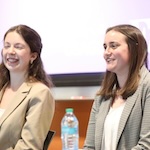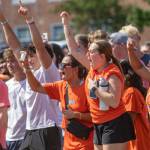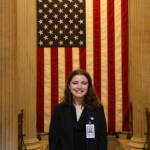
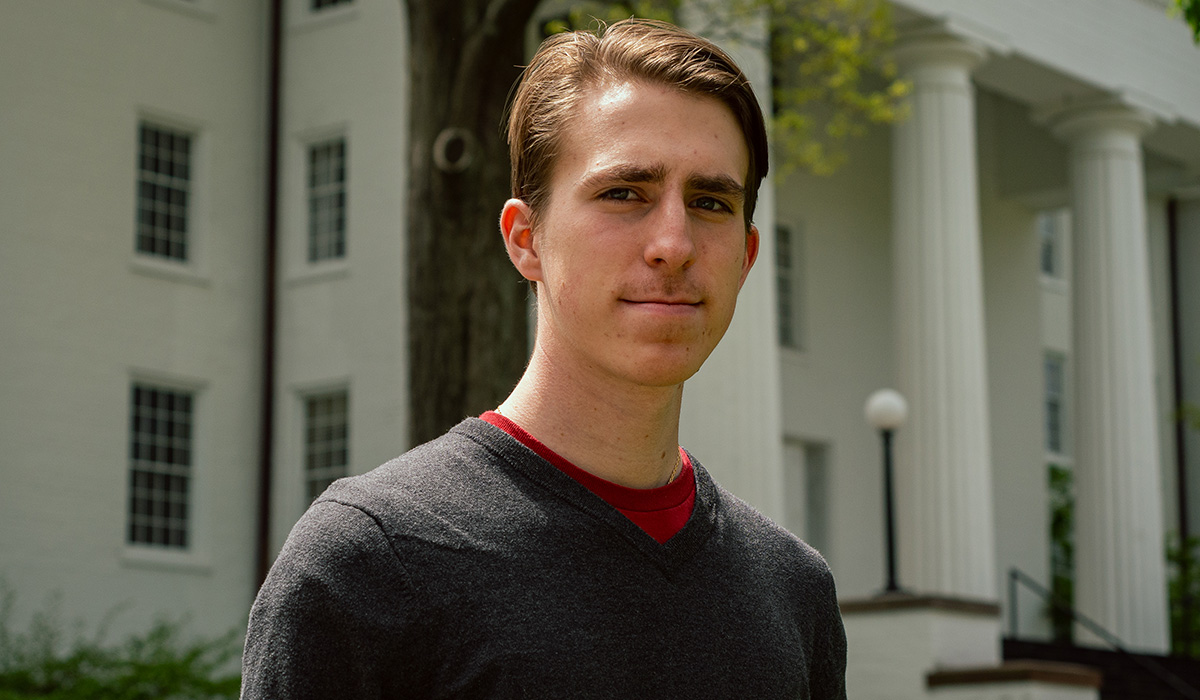
At Gettysburg College, students learn more about themselves; broaden their intellectual, cultural, and social horizons; and begin to chart their path into the future. As students embark on their liberal arts and sciences education, they discover boundless support throughout campus. Through the Gettysburg Approach, Brandon Fey ’27 found support from many people and resources that helped him communicate the environmental threat posed by the spotted lanternfly (Lycorma delicatula).
Fey, an Eisenhower Scholar from Philadelphia—a history major and provisional international and global studies major with a French minor—took inspiration for his public awareness campaign from his First-Year Seminar. He enrolled in Change Agency and Activism (now called How Change Happens), taught by Public Policy Chair Anne S. Douds. A personal encounter with the pest at Field Day activities during Orientation also provided a motivation.
“I was familiar with the spotted lanternfly, but I realized not everyone here at the College or the town [of Gettysburg] may have seen one,” said Fey. “It got me thinking that maybe there was a way to spread awareness in the Gettysburg area about the spotted lanternfly.”
As part of the Gettysburg Approach, Fey is deepening his knowledge and enduring skills through the Guided Pathways, which help him connect his experiences—both curricular and co-curricular, including his First-Year Seminar and community engagement—in an intentional way.
Students participating in the Guided Pathways receive a Personal Advising Team—comprised of a faculty, co-curricular, career mentor, as well as alumni mentor at the conclusion of their sophomore year. The members of the Personal Advising Team help students align their coursework and co-curricular activities with their areas of interest and future career or graduate school ambitions.
“I chose to participate in the Guided Pathways because I want to ensure that I am taking full advantage of the many co-curricular opportunities offered to me during my time at Gettysburg College,” he said. “I hope to gain insights about ways to maximize my co-curricular involvement in a way that allows me to explore my interests further.”
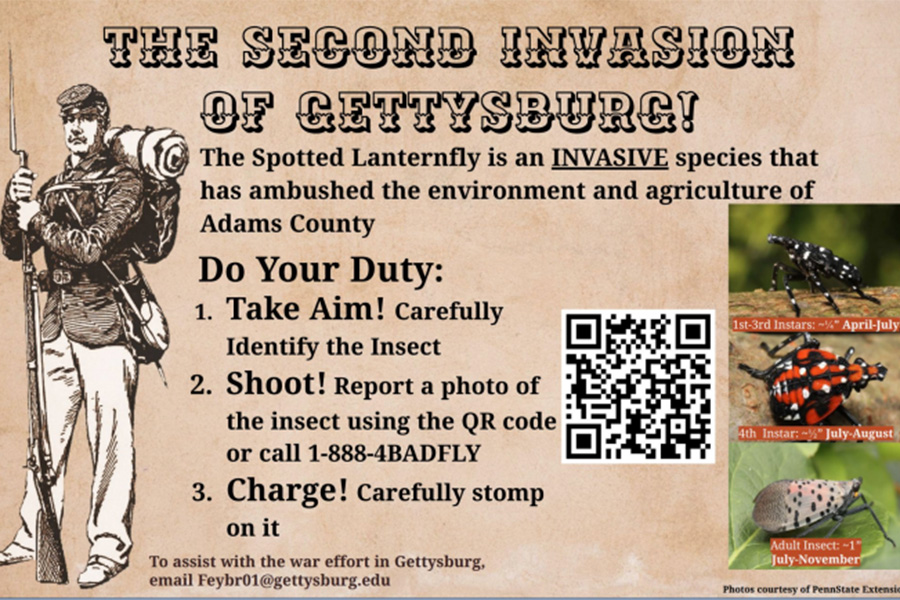
Fey created a comprehensive action plan to educate the public on the spotted lanternfly’s threat to the environment as part of his culminating First-Year Seminar project. First detected in Pennsylvania in 2014, this invasive insect feeds on the sap of plants, including fruit-bearing trees, causing damage that can result in disease and death.
Upon researching the organism and the characteristics of the Gettysburg area, Fey felt that he could best use his time and talents to create a public awareness poster campaign. He met with Meghan Clark, coordinator of sustainability initiatives at Gettysburg’s Center for Public Service (CPS), to describe his project and share his concept for spotted lanternfly eradication posters. Clark helped Fey secure funding to produce the posters and gave him insight into the best way to distribute them.
As part of his First-Year Seminar in the fall, as well as February’s CAFE (Celebration of Academic First-Year Engagement) Symposium and the 2024 Celebration of Partnership event hosted by the CPS in the spring, Fey improved his communication abilities as he handed out posters to each audience, educating them about the spotted lanternfly’s threat to Adams County’s fruit-growing industry and the environment. Fey’s public awareness efforts on campus also connected him with organizations in the greater Gettysburg community. He personally distributed posters to 70 participating businesses in downtown Gettysburg, in addition to posting them on display boards and electronic signage throughout the College campus.
“I was surprised that I was able to get so heavily involved in something that’s not in my intended major. It helped me learn about something that I probably wouldn’t have learned about, and it helped me see the value of community engagement.”
– Brandon Fey ’27
Participating in the Civil War Institute’s First-Year Experience Program, Fey began considering involving the National Park Service (NPS) at Gettysburg National Military Park in his efforts. Ashley Luskey, assistant director of the Civil War Institute, connected him with Christopher Davis, the park’s supervisory biologist, whom Fey met with and shared his posters. Fey’s posters have been displayed at visitor-oriented sites throughout the 6,000-acre national park.
“I was surprised that I was able to get so heavily involved in something that’s not in my intended major,” Fey reflected on creating his action plan. “It helped me learn about something that I probably wouldn’t have learned about, and it helped me see the value of community engagement.”
“Brandon’s work reflects the core lessons of our seminar, How Change Happens, in which we study change agency and activism at community and societal levels. Brandon’s project is particularly thrilling because it speaks to both,” Douds explained. “He applied his lessons learned on intellectual empathy and stakeholder analysis to understand various community members’ perspectives on the spotted lanternfly, including some who initially objected to killing them despite their threat to the environment.”
“Brandon took his time, methodically engaging with partners who became invested in his work as he cultivated relationships and exchanged knowledge,” Douds continued. “That is the community-level part of our studies. Although community-level, his work impacts change at the societal level—the environment—and has the potential for scalability and replicability, meaning that his community-level change work can become societal-level change.”
Building on his first-year experiences, Fey reflects on the consequential education he’s received thus far at Gettysburg. “It’s an education that encourages a curious exploration in a wide variety of disciplines,” he said. “It’s exposed me to a holistic understanding of many different subjects and given me various skills. I’ve been able to take that curiosity and interest to the next level.”
By Michael Vyskocil
Photo by Sofia Gutierrez ’26
Posted: 05/10/24
